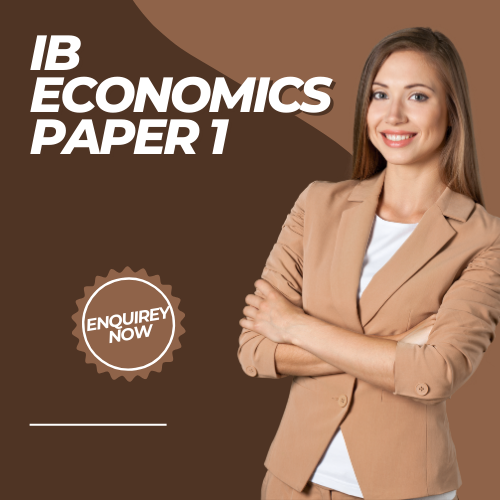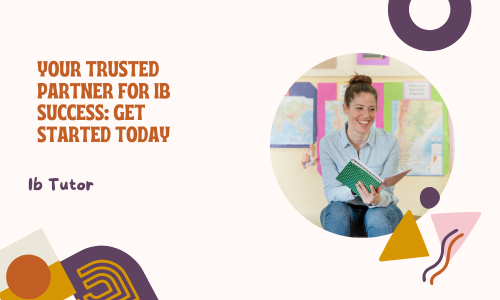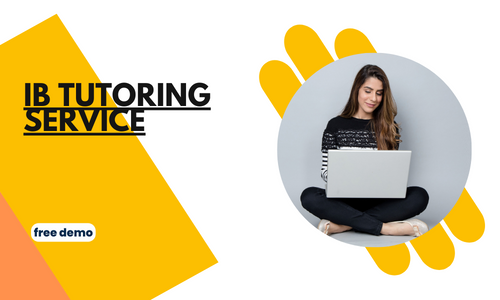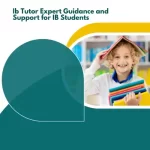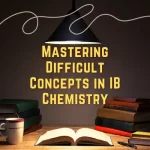Know more about international baccalaureate diploma programme
The IBDP is a broad and balanced program with an aim to broaden the students’ educational experience, challenge themselves for a trans-disciplinary integration and evaluate the learners aged 16-19 years on their acquired learning. It is highly recognized by all the premiere colleges and universities across the globe.

To earn an IB Diploma, students have to take courses from six subjects: one each from groups 1-5, and either one from group 6 or a substitute from groups 1-4. Along with the six subjects, they are to take up the IB core made up of Theory of knowledge (TOK), Extended Essay (EE) and CAS.
How PYP & MYP help to form the premises for the DP?
The PYP, MYP and DP are very well aligned with their approaches to pedagogy, teaching and learning, keeping in mind all the attributes of the Learner Profile. It enunciates a sequential climb up of the learning ladder from the PYP to DP. Hence, every program is inter-correlated.
What are the DP criteria?
Each student is eligible to take at least three (but not more than four) subjects at higher level (HL), and the remaining at standard level (SL).
Standard level subjects take up 150 teaching hours. Higher level comprises 240 teaching hours.
HL and SL courses differ in scope with reference to the extent of the depth of assessment but are measured according to the same grade descriptors. For HL the students are expected to demonstrate a greater body and depth of knowledge, comprehension and application.
SL classes are facilitated with the same level of difficulty like AP or other rigorous high school programme with a horizontal integration of assessment.
HL classes are like college level classes with a horizontal and vertical integration of assessments, where it calls for a greater body of knowledge, understanding and skills to apply the concepts in real life examples.
Because HL is more critical and analytical, an HL student will have to work harder than an SL student on a specific subject to score the same marks. Each assignment, assessment or exam follows a mark scheme.
Mark scheme gives a detailed descriptor of how well a student has met up the IB standards.
Mark band is the range of score points from 1 (minimum) to 7 (maximum).
What is the importance of IA-s and EA-s on the total score of a subject?
Each class has at least one IA, which can be of either formats as essay, presentation or group conversation.
The subject matter expert for each subject will grade the IA.
Few selected IA-s will go to a trained IB grader, who will assess how close the subject teacher of the school has graded the IA of a student according to the IB set standards
The moderation process happens if there is a discrepancy between how the IA is graded by the school subject teacher and the IB standards of evaluation.
For each class there is EA or papers which are different with different format.
EA-s are sent to the IB examiner or Reader.
The total score of a subject on a 1-7 scale attributes to 30% weightage assigned to the total number of IA-s in each class and 70% weightage assigned to the total number of EA-s in each class.
Even if a student fails to perform satisfactory in the EA, IA-s can boost up the overall score of the subject. Hence, it is very important for the students to focus on the IA-s, for which a smart handling of class assignments in the form of Summative or Formative and doing the regular homework meticulously is a much needed shot.
What is the importance of the IB Core components?
The aims of all the three core elements- TOK, CAS and EE are to foster international-mindedness in the students so as to respect the culture and tradition of others and having pride in self-identity, to develop the sense of self-awareness and to enrich their learning experience through the core components.
What is TOK- just a standalone credit for IBDP or a methodology?
Theory of Knowledge (TOK) course plays a special role in the Diploma Programme (DP) by providing an opportunity for students to construct their knowledge, rather than acquire it by adopting the art of meta cognition. Rather than being seen as a standalone course, it is intended that TOK will underpin, and inter-correlate other courses in the rest of the programme, be it in classroom or in the outside world.
It helps the self-regulated learners to reflect on the nature, scope and limitations of knowledge and the process of knowing. The course can have a huge impact on the art of learning any concept in life.
Since the students get to collaborate and draw a trans-disciplinary integration with different disciplines, it helps them to actively engage with multiple perspectives and to be more aware of their own personal perspectives and assumptions.
The TOK curriculum (first assessment 2022) is made up of three interconnected parts:
The core theme—Knowledge and the knower: It calls for the students to be knowers, become aware of the community in which they belong and develop a sense of belongingness.
Optional themes: This element gives a deeper insight into two themes pertinent to the teachers’ and students’ interests. The themes are very realistic in shaping up a person’s identity and perspective. Teachers select two optional themes from a choice of five: knowledge and technology, knowledge and language, knowledge and politics, knowledge and religion, and knowledge and indigenous societies.
Areas of knowledge: The areas of knowledge (AOK) are specific branches of knowledge, each of a unique nature and adopting different ways of knowing (WOK-s). The students get to explore five compulsory AOK-s: history; the human sciences, the natural sciences, mathematics, and the arts.
The most important tool for the teacher-student collaborative learning process is guidance and well suggested knowledge questions (KQ-s).
The 12 concepts have particular prominence in the TOK coursework. They work as supporting tools. These are evidence, certainty, truth, interpretation, power, justification, explanation, objectivity, perspective, culture, values and responsibility. Exploration of the relationship between knowledge and these concepts can help students form a strong foundation and transfer their knowledge in different contexts.
There are two assessment tasks in the TOK course which are the TOK exhibition as per the new curriculum for the class of 2022 (presently known as the PPD/ the Presentation Planning Document) and The TOK essay.
The TOK exhibition evaluates the students’ understanding, assimilation and application to demonstrate how TOK manifests in the world around us. The exhibition is an internal assessment component and is marked by the teacher and is externally moderated by the IB.
The TOK essay encourages students to pen down their thoughts in a logical, coherent sequential manner with a formal planning in response to a title focused on the areas of knowledge. The essay is an external assessment component and marked by IB examiners. The essay must be a maximum of 1,600 words and must be on one of the six prescribed titles issued by the IB for each examination session.
The complete evaluation framework invites flexibility, creativity, innovation, design thinking with a precise delivery.
How to deal with Extended Essay (EE)?
It is a 4000 words research papers on one area of student’s independent choice from the prescribed DP subjects in consultation with the school superior. It is accompanied by a reflection of no more than 500 words.
It is a 40 hours of course work. Students are supported by a supervision process recommended to be 3-5 hours, which includes three mandatory reflection sessions.
It is sent out of the school to two IB examiners. EE is to be handled with academic honesty. A good EE helps to get admission in good universities and continue the learning process along with other pathways beyond the DP.
A student should achieve a higher or D to qualify for the Diploma.
The EE is externally assessed and in combination with the grade for the TOK contributes up to three points to the total score for the IB Diploma.
Students are required to reinforce on the approaches to learning which are thinking skills, communication skills, social skills, self-management skills, research skills.
What is CAS all about?
CAS requires students to take part in a diversity of experiences in creativity, activity and service with at least one project. They include activities with a holistic touch with the expected outcome in the form of developing real life skills with a purposeful challenge and reflection.
How is the IBDP awarded?
The IB Diploma will be awarded to a candidate provided all the following requirements have been met.
-
- CAS requirements have been met.
- The candidate’s total points are 24 or more.
- There is no “N” awarded for TOK, EE or for a contributing subject.
- There is no grade E awarded for TOK and/ EE.
- There is no grade 1 awarded in a subject/level.
- There are no more than two grade 2s awarded (HL or SL).
- There are no more than three grade 3s or below awarded (HL or SL).
- The student has gained 12 points or more on HL subjects (for candidates who register for four HL subjects, the three highest grades count).
- The student has gained 9 points or more on SL subjects (candidates who register for two SL subjects must gain at least 5 points at SL).
- The candidate has not received a penalty for academic misconduct from the Final Award.

